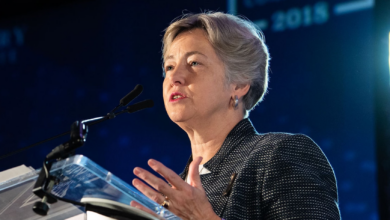
A ¡Salud! to the Future of our Heritage and our Health
By José Eduardo Sánchez
As a young, queer Hispanic immigrant living in Houston, I often find myself at the intersection of many overlapping issues that I must navigate in my everyday life. Thankfully, over the past few years, worrying about affordable health insurance for myself and my family has become less and less of an issue because of the Affordable Care Act (ACA).
While I currently have health insurance through my employer, that wasn’t always the case. Growing up in a working-class family in northeast Houston, my siblings and I relied on the Children’s Health Insurance Program (CHIP) and Medicaid for yearly check-ups, school vaccinations, and other primary and emergency care. Although it gave us some security, my parents remained uninsured, and my family continued to be one emergency-room visit away from bankruptcy.
Before the ACA, quality health coverage was out of reach not only for my parents, but also for millions of American families like mine. In fact, lesbian, gay, bisexual, trans, queer, and Hispanic communities face some of the highest uninsured rates. We also face some of the biggest obstacles to accessing care due to a lack of affordable health insurance options, discrimination, language barriers, immigration status, and unique economic challenges. Despite what many Americans may see on TV, young LGBTQ adults—and particularly young people of color—often face higher rates of poverty than their heterosexual counterparts. For many in my community, it comes down to the nearly impossible decision of choosing between housing and food or our basic healthcare needs.
January 2014 was a very exciting time for me: I started a new job, which meant I gained coverage through my employer’s insurance. Most importantly, it was right in the middle of the first ACA open enrollment, a time when individuals and families could finally shop for insurance plans on the new Health Insurance Marketplace website. This meant that not just I, but my entire family, would finally be able to access affordable healthcare coverage.
I still remember the day in January when we crowded around the dining room table at my dad’s house and I patiently helped him create an account on Healthcare.gov. Being the oldest child in my Mexican family, I found myself explaining, as I often do, more about the new law and translating some of the terms and concepts relating to health insurance. I could tell that my dad was still very hesitant about the whole process. However, once he found out that he qualified for a $500 tax credit, his last doubts faded away. Like my dad, many folks will qualify for financial assistance on the Marketplace to make their plans more affordable.
I couldn’t help but get emotional once the whole process was over. At 52 years old, my dad could finally afford to have insurance for the first time in his entire life. At 22, my sister would no longer be discriminated against because of her pre-existing mental health conditions, and she could seek medical care without incurring thousands of dollars in debt.
But so many families still don’t share our story. Unlike my sister, almost 45 percent of young Hispanics ages 18–34 remain uninsured in the state of Texas. Unlike myself, there are thousands of young LGBTQ Texans who are unemployed or underemployed, and therefore can’t benefit from employer-provided insurance. And unlike my dad, there are over a million low-income Texans who don’t qualify for ACA tax credits or Medicaid because they fall in the coverage gap.
While I consider the ACA a victory that we can and must build on, there is still important work to be done to expand access in our communities. During Hispanic Heritage Month that runs from September 15 to October 15, as a young queer Hispanic, I call upon my community to act and get covered. If you have insurance, make sure to tell your aunts and uncles, your cousins, and your abuela’s neighbors and help them sign up. If you don’t have insurance, check out younginvincibles.org/issues/health-care to get ready for the next ACA open-enrollment period that starts this November. And if you are now experiencing a life-changing event like having a baby or adopting, getting married, or moving, among other circumstances, you may qualify for a 60-day special enrollment period before November. Those who are eligible for Medicaid can enroll at any time throughout the year. Check out the Get Covered Connector at www.getcoveredamerica.org/connector to schedule a free appointment to sit down with a certified expert in your community to apply for coverage right away.
If you don’t qualify right now, keep in mind that on November 1, open enrollment for the Health Insurance Marketplace begins. In the meantime, there’s much to be done. Let’s keep working to make sure that our community can get covered and stay covered.
José Eduardo Sánchez is the Southern director for Young Invincibles.










